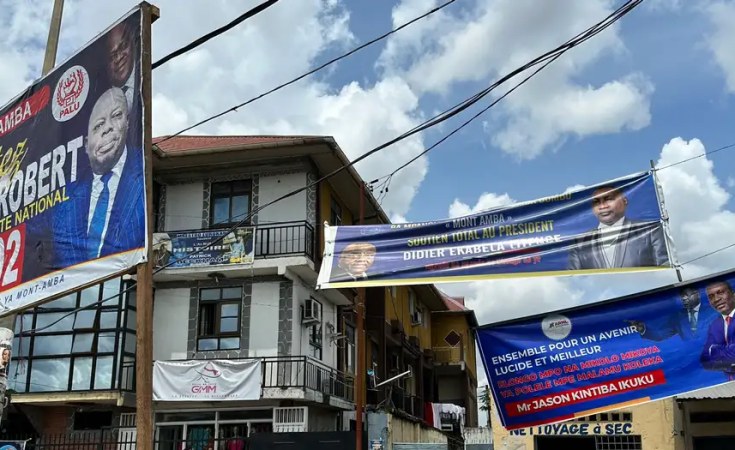Globally and in Africa, many electoral processes suffer from a lack of transparency, trust and oversight.
This is a crucial election year for Africa, with 180 million eligible voters making their mark in 17 polls across the continent. Over the past three decades, many African countries have transitioned to multiparty liberal democracies - and political power is generally now garnered through the ballot box rather than the barrel of a gun.
However, despite decades of democracy, many countries still struggle to have free, fair and transparent polls, and seamless power changes. While a highly contested election is a sign of a working democracy, five concerning trends undermine the integrity of Africa's electoral processes and quality of elections.
First is the lack of trust among political parties and voters in election management bodies. According to Afrobarometer, the number of citizens in Africa with little or no confidence in their national electoral commission rose from 41% to 55% between 2011/13 to 2021/23.
This mistrust is deeply rooted in how election management bodies are constituted. Their appointment processes are often not consultative and largely exclude opposition parties and other stakeholders. For example, the bodies in Ghana, Nigeria, Liberia and Zimbabwe have been accused of being dominated by ruling party loyalists.
Second, polls in Africa are undermined by weak transparency surrounding electoral processes. Electoral management bodies' inability to build consensus across political divides on key aspects such as timelines, campaign restrictions and party funding raises suspicion and mistrust. This is worsened by incumbents' control of these processes.
In countries that have experienced electoral disputes, e.g. Ghana, Nigeria, Kenya, and Zimbabwe, concerns are often sparked by allegations of abuse of power by those in office and accusations of electoral commission bias against opposition parties. Mistrust is usually exacerbated by the ruling party's influence over dispute resolution mechanisms or courts.
The third concerning trend is cost. The average price of an election in Africa (US$4.20 per capita) is twice the world's average and higher than the US$4 spent in Europe, North America and Australia (Chart 1). Estimates show that sub-Saharan Africa spent almost US$50 billion on polls from 2000-2018.
Coupled with expensive election filing fees, excessive campaign budgets and funds used to buy illicit votes, these high costs undermine the integrity of polls. In Ghana, the estimated cost of running for president is US$100 million - a major limit on less-resourced political parties and individuals wishing to contest elections
| Chart 1: Average election administration costs, 1990-2018 Source: ResearchGate |
The fourth factor is fierce presidential and legislative campaigns that increase the threat of electoral violence. The rise of militant and armed vigilantes associated with political parties, such as in Ghana, has become a significant disruption to free and fair voting and the integrity of election outcomes. These armed groups are often used to intimidate voters and suppress their choices, especially in opponents' strongholds.
In some cases, ruling parties use the state security service to intimidate voters, as witnessed in the 2023 elections in Nigeria, Zimbabwe and Madagascar, among others.
Finally, using misinformation and disinformation to undermine elections is a growing global trend, exacerbated by fake news and its links to artificial intelligence. For instance, ahead of South Africa's election on 29 May, various disinformation campaigns on social media have used artificial intelligence. Previous polls in Kenya, Nigeria and other parts of Africa have witnessed similar incidents.
These negative trends jeopardise democracy across the continent. In countries such as Gabon and Guinea, the lack of free and fair elections has been used as a justification or decoy for military coups. In others, the poor quality of elections often leads to protracted election petitions affecting the smooth running of the state.
Afrobarometer reveals that the number of African citizens who believe elections effectively ensure adequate representation has dropped by seven percentage points since 2008. Similarly, although elections are still widely preferred, citizens' support for polls as a way to choose leaders has dwindled by an average of eight percentage points since 2011 across 29 African countries. And the number of Africans who didn't vote in their recent national elections rose from 18.2% in 2001 to 24.7% in 2023 (Chart 2).
| Chart 2: Proportion of Africans who did not vote in recent elections Source: Afrobarometer |
To improve election quality, election management bodies must be truly independent of external control and manipulation. This can be achieved by appointing competent people through consultative processes, ensuring their security of tenure, and providing them with adequate resources needed to function.
The bodies themselves should work on securing public trust and confidence by building consensus on electoral reforms across the political divide in a transparent manner.
To avoid accusations about election management bodies' lack of independence, best practices could be drawn from cases such as Mozambique, where the law provides for equitable representation of political parties in the election management body. Interventions would of course need to take each country's context and history into account.
Curtailing the rising cost of polls means enacting and implementing laws on campaign periods and expenditure ceilings, prohibiting and punishing vote-buying, and ensuring election management bodies are judicious about their spending.
To deal with electoral violence, governments must ensure that professional police and national security services are adequately resourced to perform their duties. Apolitical leaders are needed for these institutions, along with parliamentary oversight to help reduce executive interference.
Finally, African countries must raise awareness about misinformation and disinformation in the digital age among the media, the public and state communication departments. Laws dealing with the problem also need to be enacted and enforced.
These measures are vital to restore African citizens' belief in the electoral democratic process and its dividends.
Enoch Randy Aikins, Researcher, African Futures and Innovation, ISS
Maram Mahdi, Researcher, African Peace and Security Governance, ISS


